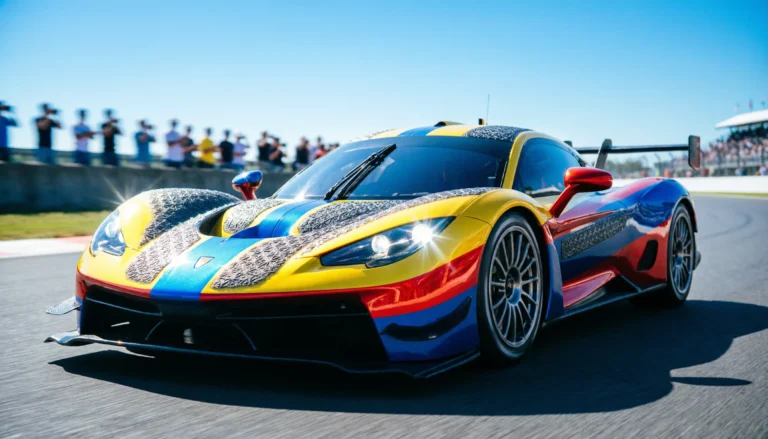
The “The Global Market for Automotive Displays 2024-2034” report has been added to ResearchAndMarkets.com’s offering.
The global automotive displays market is undergoing a transformative phase, bringing cutting-edge display technologies to the automotive industry.
From 2024 to 2034, this dynamic market is set to redefine the interaction between drivers and vehicles, enhancing infotainment systems, instrument clusters, head-up displays (HUDs), Advanced Driver Assistance Systems (ADAS), and even autonomous driving.
Display Technologies Reshaping Automotive Interfaces:
Automotive displays have emerged as the pivotal interface between drivers and vehicles, facilitating not only vital information but also entertainment.
This market encompasses a diverse array of display technologies, including Liquid Crystal Displays (LCD), Organic Light Emitting Diode (OLED), Thin Film Transistor LCD (TFT-LCD), Thin-film electroluminescent (TFEL) displays, Head-Up Displays (HUDs), 3D displays, Computer-Generated Holography (CGH), Light Field Displays (LFD), Spatial Light Modulators (SLM), flexible displays, transparent displays, curved displays, and more. As electric vehicles (EVs) and autonomous driving take center stage, the role of vehicle-mounted displays is expanding.
Market Trends and Key Areas of Focus:
- Infotainment Systems: Revolutionizing the in-vehicle entertainment experience.
- Instrument Clusters: Redefining the driver’s information dashboard.
- ADAS and Autonomous Driving Displays: Enabling crucial visual feedback for safer driving.
- Smart Mirrors and Pillar Displays: Enhancing visibility and safety.
- Mini-LED and Micro-LED Displays: Pioneering efficient and vibrant display solutions.
- Smart Glass: Innovating privacy and augmented reality experiences.
- Quantum Dot and Electrophoretic Displays: Advancing display technology.
- Plasmonic Displays: Pushing the boundaries of visual information.
- Heads-up Contact Lens: The future of augmented reality in vehicles.
- Metamaterials: Unlocking unprecedented possibilities.
Market Drivers and Challenges:
The market is driven by evolving consumer demands for advanced automotive displays, the rise of EVs, the emergence of autonomous driving, and the pursuit of enhanced safety and entertainment. However, challenges include addressing the digital divide and ensuring access to these advanced technologies for all.
Global Market Outlook:
Market revenues for various display types and technologies are projected to expand significantly from 2018 to 2034, offering a comprehensive outlook for industry stakeholders. Regional analyses are provided to shed light on regional dynamics.
Key Industry Players:
Profiles of 62 prominent companies in the automotive display technology space are presented. These include Continental, Envisics, Hyundai Mobis, LG Display, Samsung Display, TCL, Visteon, WayRay, and many more, showcasing the innovative leaders shaping the future of automotive displays.
Key Topics Covered:
1 RESEARCH METHODOLOGY
2 INTRODUCTION
2.1 Evolution of automotive displays
2.2 Market trends
2.3 Main types of displays
2.4 Display technologies for Automotive
3 GLOBAL MARKET REVENUES
3.1 By display type
3.2 By display technology
4 INFOTAINMENT SYSTEMS
4.1 Overview
4.2 Display Technologies for IVI Systems
4.3 Market outlook
5 INSTRUMENT CLUSTER DISPLAYS
5.1 Overview
5.2 Benefits
5.3 Display Technologies for Instrument Clusters
5.4 Market outlook
6 HEAD-UP DISPLAYS (HUD)
6.1 Overview
6.2 Trends
6.3 HUD Display Technologies in automotive
6.4 HUD Content and Features
6.5 Automotive models incorporating HUDs
6.6 Automotive HUD companies
6.7 Advanced HUDs
6.8 Market Outlook
7 FLEXIBLE AND CURVED DISPLAYS
7.1 Technologies
7.2 Flexible Display Applications in Automotive
7.3 Market challenges
7.4 Companies
7.5 Market outlook
8 ADAS AND AUTONOMOUS DRIVING DISPLAYS
8.1 ADAS sensors
8.2 Display technologies
8.2.1 Touchless/gesture human-machine interfaces (HMI)
8.2.2 Transparent displays
8.2.3 3D displays
8.2.4 Flexible displays
8.2.5 AR/VR integration
8.3 Market outlook
8.4 Companies
9 SMART MIRRORS AND PILLAR DISPLAYS
9.1 Key trends
9.2 Smart Mirror Technologies
9.2.1 Digital side mirrors
9.2.2 E-mirror
9.2.3 Smart rearview mirror
9.2.4 Key benefits of smart mirrors
9.3 Pillar-Mounted Displays
9.3.1 Types
9.3.2 Benefits
9.4 Market Outlook
9.5 Companies
10 3D DISPLAYS
10.1 Overview
10.2 3D displays in autonomous vehicles
10.2.1 Multiview 3D displays
10.2.1.1 Description
10.2.1.2 Approaches
10.2.1.3 Integral imaging technologies
10.2.2 Spatial LFDs
10.2.3 Computer-generated holography (CGH) displays
10.3 Market challenges
10.4 Companies
11 TRANSPARENT DISPLAYS
11.1 Technology overview
11.2 Automotive applications
11.2.1 Side windows
11.2.2 Smart windows
11.2.3 Micro-LEDS
11.2.4 HUD enhancement
11.2.5 Privacy partitions
11.3 Market challenges
11.4 Companies
12 MINI-LED DISPLAYS
12.1 Technology overview
12.1.1 Quantum dot films for Mini-LED displays
12.1.2 Perovskite colour enhancement film in Mini-LEDs
12.2 Automotive applications
12.2.1 Dashboard Displays
12.2.2 Head-Up Displays (HUDs)
12.2.3 Digital Instrument Clusters
12.2.4 Ambient Lighting
12.2.5 Exterior Lighting
12.3 Companies
13 MICRO-LED DISPLAYS
13.1 Overview
13.1.1 Display configurations
13.1.2 Transparency
13.1.3 Borderless
13.1.4 Flexibility
13.2 Applications in automotive
13.2.1 Flexible Display
13.2.2 Transparent Display
13.2.3 Splicing display
13.2.4 Signalling & communication
13.2.5 Head-up display (HUD)
13.2.6 Lighting (Automotive matrix headlamps, intelligent lighting)
13.3 Market challenges
13.4 Companies
14 SMART GLASS
14.1 Smart dimming
14.2 Transparent suspended particle device (SPD) displays
14.3 Polymer dispersed liquid crystal (PDLC) films
14.4 Market challenges
14.5 Companies
15 OTHER DISPLAY TECHNOLOGIES







